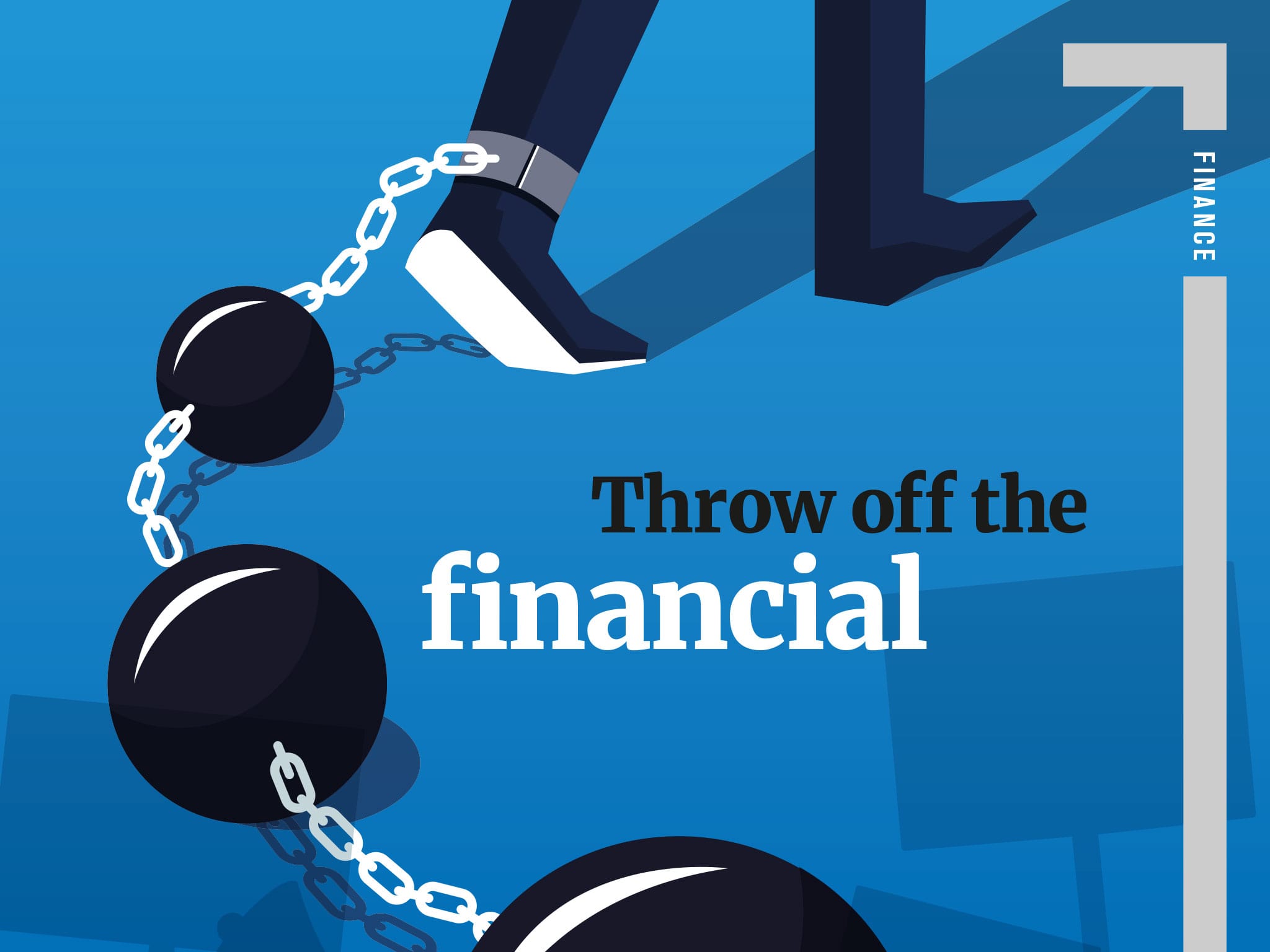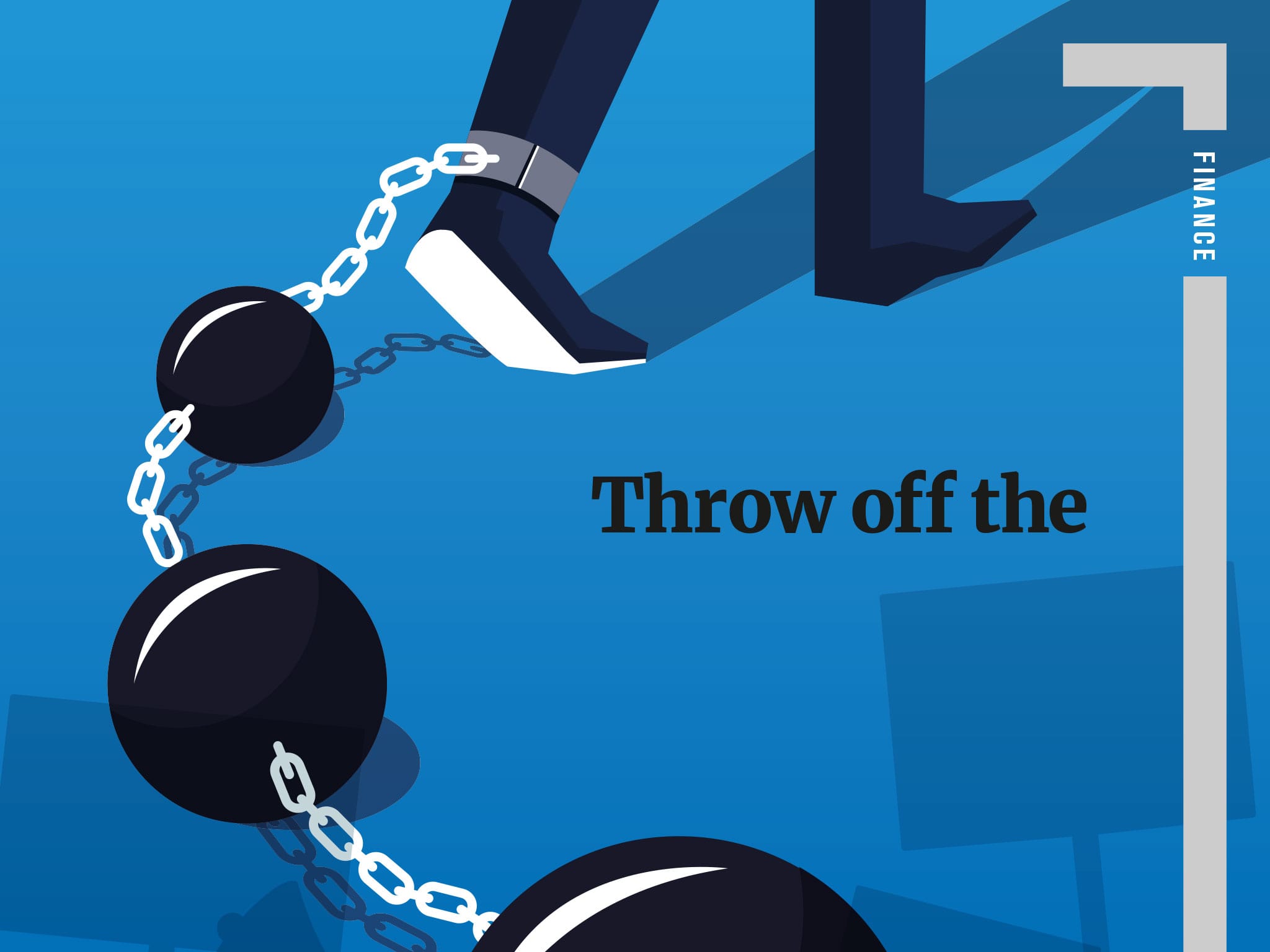
























FINANCE Throw off the financial shackles READ MORE If anything resonates with you in this article, or you would like to discuss your own financial planning, we would be pleased to hear from you. You can contact the BALPA Financial Solutions team on 020 8476 4100 or email bfs@balpa.org. For more information, visit www.balpa-bfs.co.uk A number of pilots have contacted BFS with concerns about the financial impact of a strike By Darren Williams, Managing Director of BALPA Financial Solutions here has been much talk throughout BALPA this summer about industrial action. Ballot papers have been issued to several members and feelings against employers have been strong. But going out on strike is completely different from simply showing support by ticking a box on a ballot paper. Some people are naturally nervous about downing tools and this is felt most intensely by those who believe they cant afford to lose a few days pay. The BFS Helpdesk has received a number of enquiries from pilots worried about the financial impact of a strike. These come mainly but not exclusively from younger members who have only embarked on their careers recently and are saddled with debt from flying school, or from pilots with large financial commitments, such as mortgages and school fees. What is common to all the enquiries is that none of the people concerned has access to any spare cash and this restricts choice. If every penny you earn is accounted for, how can you forgo any of that recompense, even for a day or so? In effect, you are shackled by your finances. You do not have the freedom of thought afforded to you by knowing that, whatever you chose to do, money is not the deciding or worrying factor. The alternative may be a utopian position, but it is not out of reach of most people. And we are not just talking about having the confidence to join industrial action; it could be anything in life starting a family, moving house, changing your career, sticking two fingers up to your employer by walking out of your job, leaving an unhappy relationship, or taking a sabbatical. Discipline is key READ MORE Some of us are fortunate enough to have funds available to us through gifts or inheritances. For most though, the key to reaching financial freedom is having the self-discipline to save putting money aside each month to build up a capital sum that you can rely on, as and when required, at a later date. We are living in an I want it now society, with extremely easy access to credit a dangerous combination. But learning to save will serve you well throughout life. You may not appreciate that straightaway, but, mark my words, you will over time. Knowing you have money to fall back on, whatever life may throw at you, is extraordinarily liberating. You will gain peace of mind from not having to worry about paying the garage bill when your car breaks down; from having the means to bail out friends and family in their hour of need; from deciding to go private when you need medical treatment; and even from opting to go out on strike. The 10 per centers So, where do we begin? I would recommend that anyone starting their first job should save a portion, at least 10%, of their monthly wage packet from the off. Starting to save is always the hardest step, but once it becomes a habit, it becomes second nature. Also, you dont miss what you never had. If you have been working for some time, however, and your lifestyle has been shaped by your current level of earnings, taking a conscious decision to save is harder. Invariably, some sacrifice will be required to find the money to put aside each month and the emotional turmoil involved in making that sacrifice will feel like a loss. Even more so when you consider you will not necessarily see any material benefit of making that sacrifice, other than an increasing cash reserve. You may decide to forgo a week in the sun, or stop going out to eat once a week, but what tangible reward will you get in return? In most cases, there wont be any not straightaway anyway. So your focus needs to stay on the bigger purpose, and that requires discipline. A friend of mine believes that financial planning is all about spending. We, financial planners, only advise people to save and invest money so they have that money to spend at a later date and thats important to remember. The bigger purpose is to ensure you are always able to maintain your lifestyle and avoid any unnecessary drop in your standard of living. Giving up a little now will bring bigger rewards in the future. Analyse your spending You may be reading this article and thinking Thats all very well and good, but my finances are such that I cant afford to save anything. For most, and I wont apologise for being blunt here, thats just denial. When you analyse your spending and discover exactly where your money goes, you can often find areas where you can cut back. I do accept, however, that there are some people whose finances are very tight. The need to formulate a plan in these circumstances is arguably even greater. For example, if you have no capacity to save immediately, you could make a conscious effort to put aside a portion, if not all, of any future pay rise or bonus, before you get used to enjoying that extra money. Remember, you wont miss what you never had. What if I have an outstanding loan?, I hear you ask. Any borrowings cost money significantly so if the borrowing is by way of a credit card or unsecured loan. Although it is always nice to have a small amount put aside (the equivalent of three months income, for example), it is advisable to concentrate on paying off any borrowings, other than your residential mortgage, before turning your attention to serious saving. Without a reserve fund, the occurrence of any unforeseen event may have a stressful and worrying impact on your life. By that stage, it is often too late to do anything of note to alleviate your situation. Preparing in advance, however, will give you the freedom and knowledge to do whatever you want without money being a deciding factor.